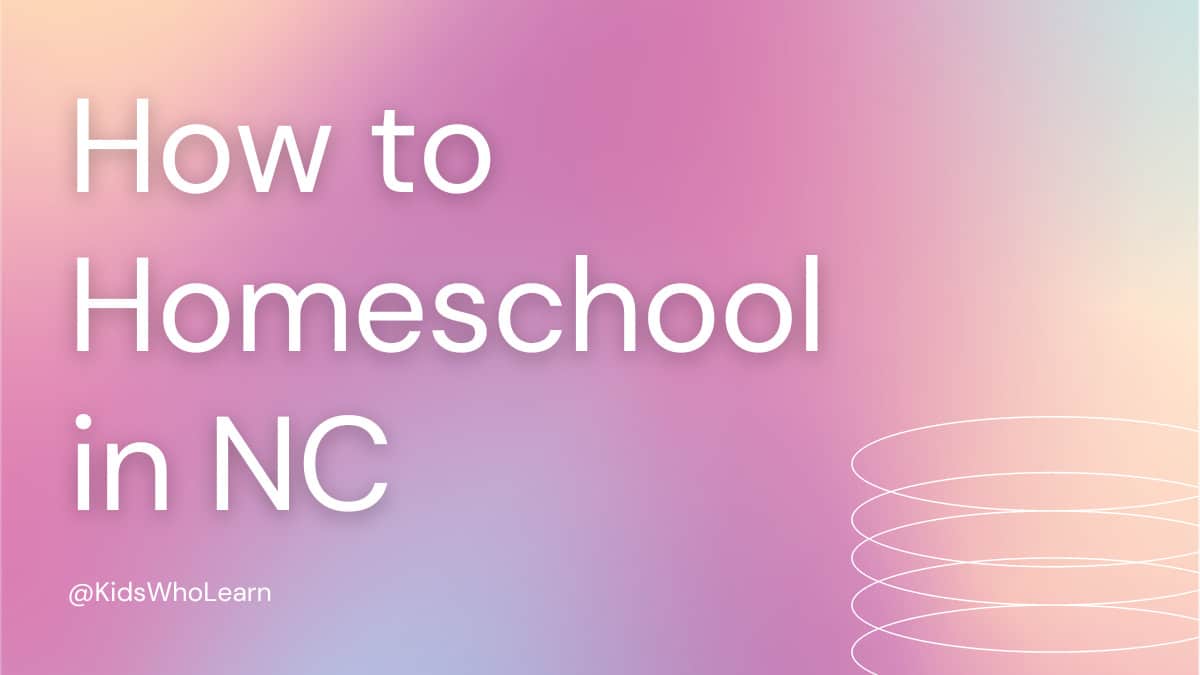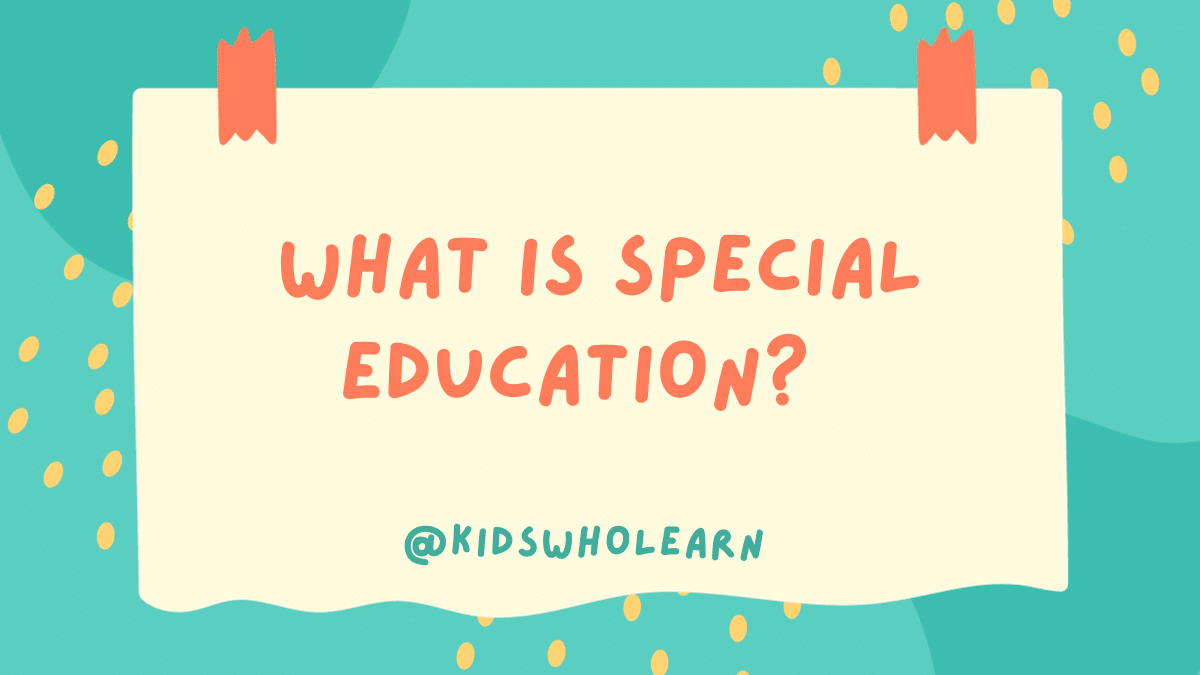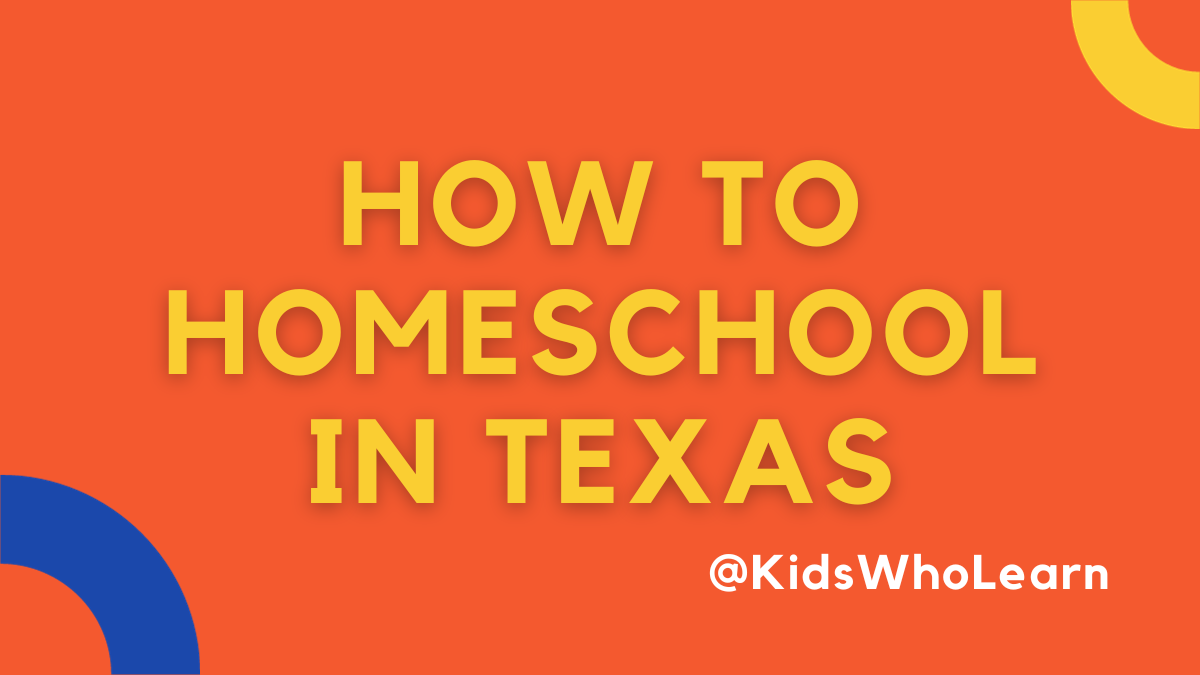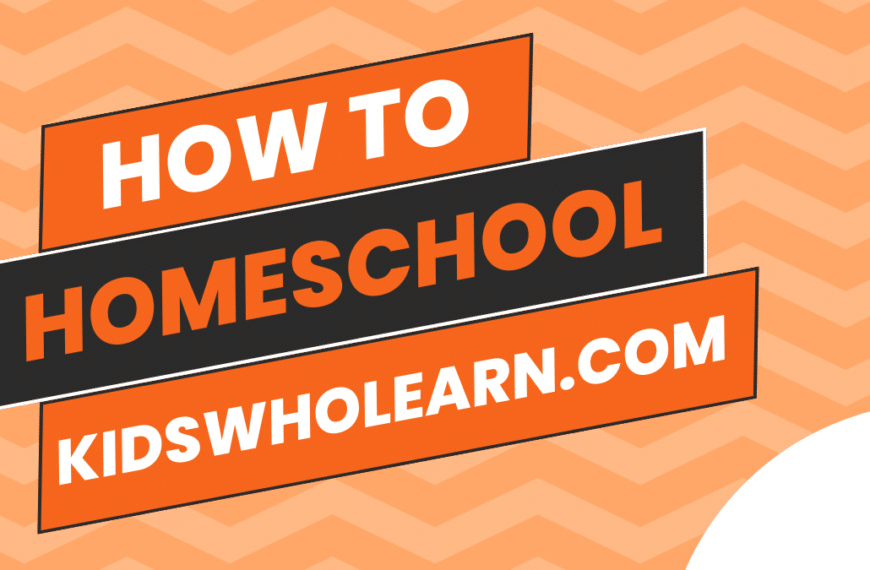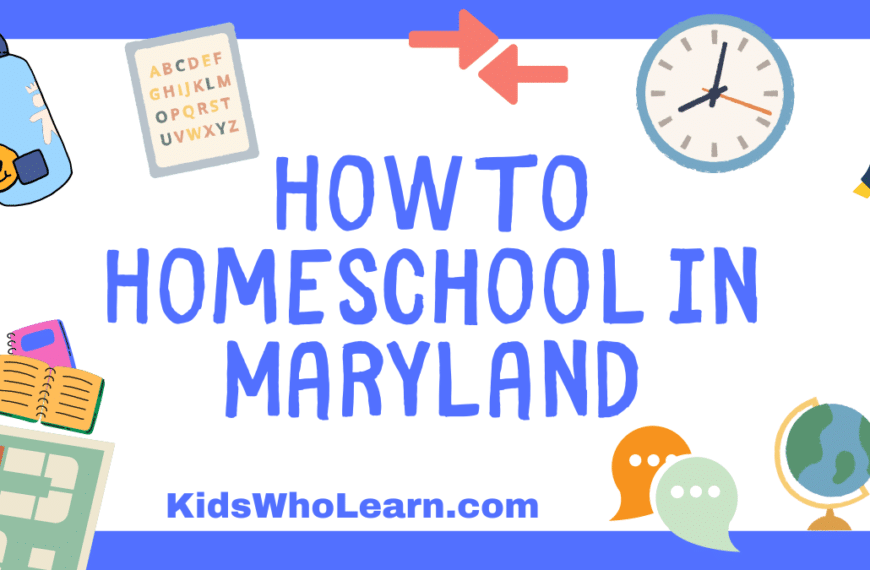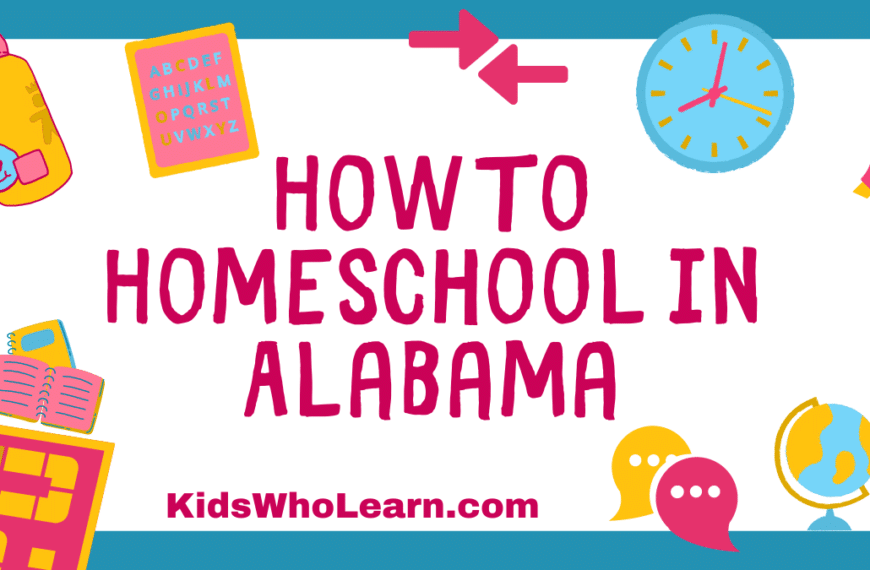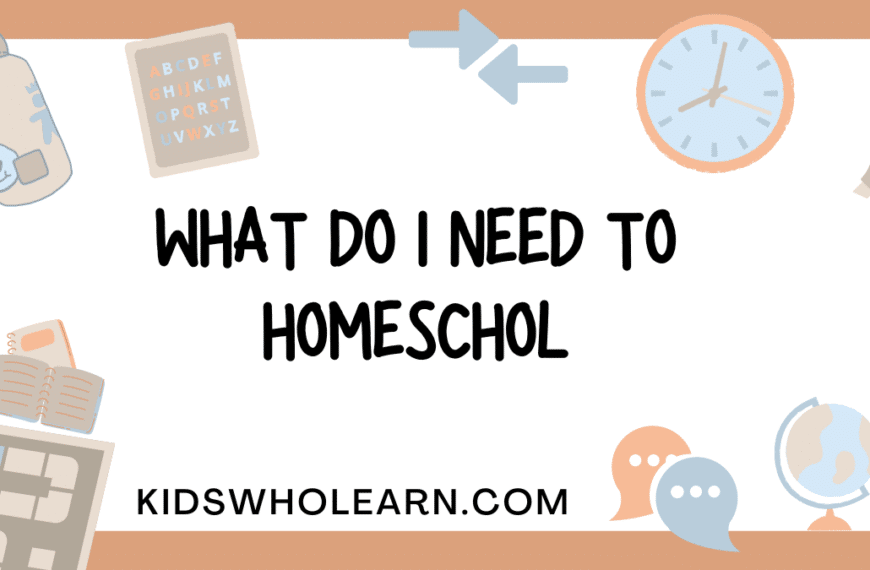Homeschooling can be an excellent choice for many families, offering a flexible and personalized approach to education. In North Carolina, it’s possible to homeschool your children for free, giving them a high-quality learning experience without breaking the bank. In this article, we’ll explore how to get started with homeschooling in NC and take advantage of the free resources available to make the educational journey enjoyable and effective.
Understanding the homeschooling landscape in North Carolina is crucial for ensuring you abide by the legal requirements and make the most of the opportunities available to you. We’ll discuss the benefits of free homeschooling, help you begin the process of launching your homeschool, and point you in the direction of online and local resources that will support you and your children on this educational adventure.
Key Takeaways
- Homeschooling in NC can be done for free while providing a high-quality education.
- Abiding by legal requirements and understanding the homeschooling landscape in NC is crucial.
- Embracing both online and local resources will greatly support your homeschooling journey.
Understanding Homeschooling in NC
North Carolina offers a supportive environment for homeschooling, enabling you to provide a quality education to your children. Let’s dive into the basics of homeschooling in this beautiful state.
First, know the requirements for homeschooling in North Carolina. You’ll need to have at least a high school diploma or its equivalent to be eligible. You’ll also have to inform the North Carolina Department of Administration about your intention to homeschool by submitting a Notice of Intent, which can be completed online.
Next, choose a homeschooling approach that suits your family’s needs, values, and educational goals. In NC, you can select from diverse homeschooling styles such as traditional, classical, Charlotte Mason, unschooling, or even a mix of these methods. Feel free to explore each style and decide on the most compatible approach for your family.
Once you’ve settled on a homeschooling style, it’s time to pick your curriculum. North Carolina does not have specific curriculum requirements, so you’re free to use materials that align with your chosen educational approach. Several valuable resources are available for free, including online courses, e-books, and local library resources.
At the beginning of each school year, carefully plan and develop a structure for your child’s education. This includes preparing lesson plans, organizing materials, and setting up a suitable learning environment. Stay organized and maintain records of your child’s progress through documentation, report cards, and educational assessments.
It’s essential to adhere to the state requirements, which include annually administering a nationally standardized test or other equivalent to assess your child’s academic progress. Keep these records for at least one year.
Lastly, remember that homeschooling comes with its unique set of challenges. To ease the journey, connect with local homeschool groups or online homeschooling communities. These groups can offer support, advice, and opportunities for social interaction with other homeschooling families.
Homeschooling in NC can be a wonderful and rewarding experience for both you and your child. With proper planning, patience, and a thoughtful approach, you’ll be well on your way to providing a quality education tailored to your child’s needs and interests.
Benefits of Free Homeschooling
Choosing to homeschool your children in North Carolina can be a rewarding experience for you and your family. By homeschooling for free, you can save money while providing a customized learning experience for your child. Let’s discuss some benefits of free homeschooling.
Firstly, you have the opportunity to be fully involved in your child’s education. This allows you to shape their learning experience, focusing on their strengths and areas of interest. You can also provide support in areas where they may need additional help. Remember, you know your child better than anyone else!
Another advantage is flexibility in scheduling. Free homeschooling offers the freedom to plan educational activities around your family’s lifestyle. You can incorporate field trips, hands-on learning, and real-world experiences as you see fit. This freedom can lead to a more engaging and enjoyable education for your child.
By choosing free homeschooling resources, you also encourage a lifetime of learning. There are countless online materials, printables, and curriculum options available at no cost. This wealth of resources allows you and your child to explore new topics and expand their knowledge.
Lastly, free homeschooling can strengthen family bonds. As you work together to create a nurturing learning environment, you will form deep connections and shared experiences. Your child will benefit from the love and attention you devote to their education.
In short, free homeschooling in North Carolina can provide a customized, flexible education that fosters strong family relationships and encourages lifelong learning.
How to Start Homeschooling in NC
Legal Requirements
To start homeschooling in North Carolina, you need to comply with the state’s legal requirements. First, ensure that the primary instructor of your homeschool has at least a high school diploma or a General Education Development (GED) certificate. Then, notify the Department of Non-Public Education (DNPE) of your intent to homeschool by submitting a Notice of Intent form. Keep detailed records of attendance, immunizations, standardized testing results, and any other required documentation.
Choosing the Curriculum
Choose a curriculum that best suits your child’s needs and learning style. Research a variety of curricula and educational resources available for homeschooling families, such as online courses, textbooks, and supplementary materials. Consider developing a personalized approach that includes a mix of traditional teaching methods, project-based learning, and hands-on activities. Be sure to cover basic subjects like language arts, math, science, social studies, but also provide opportunities for exploring your child’s interests and passions.
NC Homeschooling Organization Registration
Joining a homeschooling organization in North Carolina can offer valuable support and resources for your homeschooling journey. To register, visit the North Carolina Department of Non-Public Education (NCDNPE) website and search for homeschooling organizations. Contact the organization of your choice, and follow their registration process. By joining an organization, you gain access to a community of other homeschooling families, educational resources, and opportunities for enrichment activities and events.
Embracing Online Resources
Free Online Homeschooling Programs
As a parent considering homeschooling in North Carolina, you should explore the numerous free online homeschooling programs that can supplement your child’s education. Programs like Time4Learning, Khan Academy, and Easy Peasy All-in-One Homeschool offer a wide range of lessons covering core subjects, such as math, science, and English. These programs are self-paced and provide interactive learning experiences to keep your child engaged. Look into each of these programs to determine which is best suited for your child’s learning style and academic needs.
Educational Websites and Apps
In addition to dedicated homeschooling programs, there are many other educational websites and apps that can serve as effective learning tools. These resources offer creative and interactive ways to reinforce concepts and aid your child’s learning.
- Websites: Websites like PBS Kids, National Geographic Kids, and Starfall offer educational content on various topics, including reading and literacy, science, and geography. Your child can explore different subjects and engage in interactive learning.
- Apps: Educational apps like Duolingo, BrainPop, and Socratic by Google can provide on-the-go learning opportunities for your child. These apps cover subjects like foreign languages, general knowledge, and problem-solving.
Make use of these free resources to help foster a well-rounded learning experience for your child. They can not only enhance your child’s homeschooling experience but also enable you to save money on educational materials.
Locating Local Support and Resources
Local Homeschooling Groups
One of the best ways to begin your homeschooling journey is by connecting with local homeschooling groups in North Carolina. These groups can provide you with support, advice, and a sense of community. You can find local groups by searching online or on social media platforms. Some popular groups in North Carolina include:
- North Carolinians for Home Education (NCHE)
- Charlotte Area Homeschoolers
- Triad Homeschoolers
Local homeschooling groups often host events and activities such as field trips, classes, playdates, and more. By joining one of these groups, you’ll not only find essential resources, but also like-minded families who can support you throughout your homeschooling journey.
Public Library Resources
Public libraries are an invaluable resource for homeschoolers. They offer free access to a variety of educational materials, such as books, magazines, and online databases. Additionally, libraries may have dedicated sections for homeschooling resources and materials. Some of the valuable resources you can access at your local library include:
- Books on homeschooling methods and curricula
- Educational videos and documentaries
- Online learning and research databases
Don’t forget to ask the librarian for assistance if you need help finding specific materials or resources. They can also inform you about any homeschooling programs or events occurring at the library.
Community Events and Activities
Participating in community events and activities can enhance your homeschooling experience and provide opportunities for socialization. Stay informed about local events by checking community calendars, signing up for newsletters, or following local organizations on social media. Some examples of events and activities to consider include:
- Museum-led workshops and classes
- Science fairs and expos
- Community sports leagues
- Art and music festivals
Remember, homeschooling in North Carolina for free is possible with the right resources and connections. By actively seeking local support and resources, you can ensure a successful and enjoyable homeschooling experience for both you and your child.
Concluding Thoughts
Homeschooling in North Carolina can be a rewarding experience for both you and your child. With a variety of resources and support available, it’s possible to provide a high-quality education for your child at no cost. Make sure to stay up-to-date with the state’s requirements and take advantage of the many free tools and materials available to you.
One of the key aspects of homeschooling is staying organized and consistent with your child’s education, while also keeping them engaged and excited about learning. Your approach should focus on finding the right balance between structure and flexibility, allowing your child the opportunity to explore their interests while still meeting their educational requirements.
Remember to network with other homeschooling families in your area, as they can provide valuable support, advice, and opportunities for socializing with other children. Overall, enjoy the unique experience of homeschooling your child in North Carolina and take pride in the opportunity to create a personalized and enriching educational experience for them.
Frequently Asked Questions
What are the legal requirements for homeschooling in North Carolina?
In North Carolina, homeschooling is legal and governed by the Department of Non-Public Education (DNPE). To homeschool in NC, you must:
- Hold a high school diploma or its equivalent.
- Submit a Notice of Intent to establish a homeschool to DNPE.
- Use the English language for instruction in core subjects.
- Administer annual standardized tests in mathematics and English, which don’t need to be submitted to the DNPE.
What free online homeschool curriculum options are available in NC?
There are several free homeschool curriculum options available for those homeschooling in North Carolina, including:
- Easy Peasy All-in-One Homeschool: Offers comprehensive pre-K to high school level coursework.
- Khan Academy: Provides courses in multiple subjects and grade levels.
- AmblesideOnline: Offers a Charlotte Mason-style curriculum, covering core subjects and the arts.
- CK-12: Provides resources for primary and secondary education in various subjects.
Check with each provider for their specific grading policies and age-appropriateness.
How do I register my homeschool in North Carolina?
To register your homeschool in North Carolina, follow these steps:
- Visit the DNPE website and select the option to create a new account.
- Log in with your account and complete the “Notice of Intent to Operate a Home School.”
- Include the name and address of your homeschool, the grade levels, and the name of the parent providing instruction.
- Confirm your submission to receive a homeschool ID number, which serves as an official record of registration.
What are the graduation requirements for homeschoolers in NC?
There isn’t a specific set of graduation requirements for North Carolina homeschoolers. Still, it’s generally recommended that homeschool students complete:
- Four English credits
- Four math credits
- Three science credits
- Four social studies credits
- Additional elective credits
Ensure your homeschool record reflects college admission requirements if a higher education path is your goal.
How can I meet attendance records and other documentation requirements?
As a homeschool educator in North Carolina, you should maintain records, such as:
- Attendance logs (180 days per academic year)
- Immunization records
- Annual standardized test results
- Lesson plans and curricula used
- Examples of student work, assignments, and grades
You’re not required to submit these records to DNPE but keeping them organized is critical for potential future educational opportunities for your student.
Are there any free K-12 online schools accessible to North Carolina residents?
Yes, there are free K-12 online schools available to NC residents. Two of the most notable options are:
- North Carolina Virtual Academy: Offers a comprehensive curriculum with certified teachers, online instruction, and community opportunities.
- North Carolina Cyber Academy: A public, tuition-free, online charter school for K-12 students offering state-certified teachers, support services, and materials.
These options may provide alternative, full-time online education if you desire a more structured environment for your student.

